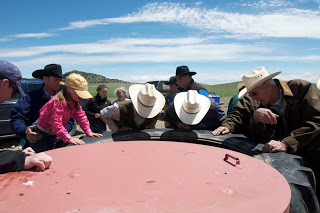Affiliate Highlight: Southwestern Montana Stockman’s – Dillon
Here in southwestern Montana we are having a good start to the summer season. It is still dry but the grass in the mountains is exceptional in most areas, although there have been some problems with stock water. It is a busy time but sure a rich time of year to be involved in the livestock business.
The Department of Labor is proposing changes to the H-2A guidelines for sheep herders that would be extremely difficult for ranchers to comply with. The wages for herders could increase 3 to 4 times and the living conditions that would be mandated could be impossible to meet in open range situations. The DOL is also proposing changes to the housing requirements for H-2A irrigation workers that would be expensive to meet. We have sent comments to the DOL on both for these issues and are hoping that common sense will prevail.
The matter in this area that has everyone’s attention is a lawsuit filed by a Bozeman-based sportsman’s group to stop the grazing of sheep on seven U.S. Forest Service allotments on the Gravelly Range Mountains. An injunction was sought against two of the allotments for this grazing season. U.S. District Judge Brian Morris rejected the injunction as he was not convinced that the suit is likely to succeed on the merits or likely that irreparable harm was likely to occur while he decides the merits of the case.
At issue is that grazing of sheep threatens to harm federally protected grizzly bears and prevents the return of bighorn sheep to the Gravelly Range. It is hard to keep a straight face when you say that sheep are a threat to grizzly bears. Sheep have grazed in this area for around 150 years and the grizzly bear population continues to grow. We feel that this is not a sheep issue but a grazing of livestock on public lands issue and running livestock in an area where a protected species exists, issue. We are seeking council as to the best approach to help in this lawsuit.
We talk in our different groups how we are not getting out the message of how important the livestock industry is to our local communities, our state and our nation. We end up reacting rather than being proactive. Some of our younger members are tackling this through the use of social media. In listening to their understanding of how all of this works and the ideas they are working on, I am excited to see where this goes. Right now they are gathering pictures, videos, and information about the contributions of livestock to our lives so as to begin with some real substance. MSGA has volunteered to help in any way possible and we are very appreciative of their support.
This is a great industry we have the privilege to be a part of. I hope this finds you all well.






